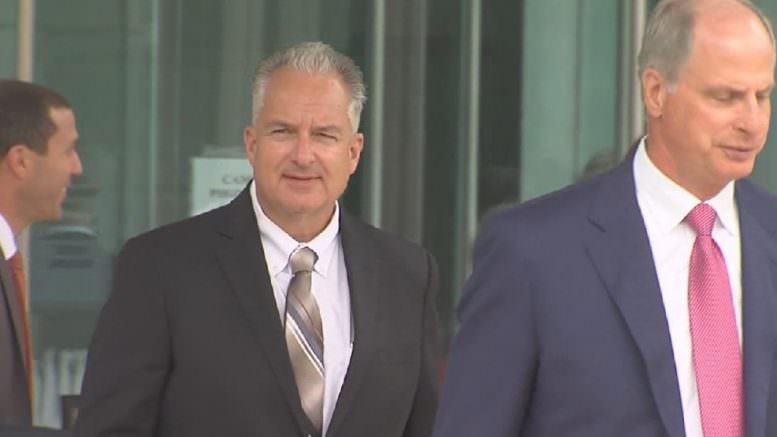Attorneys began questioning witnesses Monday in a defamation lawsuit involving an e-mail the state treasurer’s Chief of Staff Jim Harris sent out and released to KATV, as well as whether the e-mail at the center of the defamation suit led to Treasurer Dennis Milligan firing former employee David Singer.
Singer is suing Jim Harris, alleging “slanderous and defamatory remarks” in regard to Singer’s mental health during his time at the state treasurer’s office. The suit also names Dennis Milligan in reference to Milligan terminating Singer, as the plaintiff argues due to the mental health claims written in an internal memo that was eventually released under the Freedom of Information Act. Attorneys argue that the e-mail released to the media, that discusses mental health concerns, was the reason Singer was terminated in April 2015 from his position at the State Treasurer’s office.
A jury was narrowed to 12 people – five women and seven men – before attorneys for either side gave opening statements.
Luther Sutter, attorney for Singer, told the jury in his opening statement that the lawsuit centers on an e-mail sent from Jim Harris to Jason Brady on April 6, 2015, in which Harris said that he continues to suspect Singer has mental problems that stem from the loss of his wife to breast cancer. The e-mail also claims that Singer was using his grief to “hit on women”.
Sutter argued that Singer maintains he does not have a mental illness and believes that Harris leaked the e-mail to KATV after Singer had done an interview with Channel 7, and Harris’s release of the e-mail it was done with malice. That’s what Sutter believes justifies defamation damages be paid to his client, Singer.
The concerns about mental health listed in the e-mail also give Sutter concern that Singer was terminated due to potential mental health concerns, which Sutter and his team claim is a violation of the Americans with Disabilities Act. Sutter claims Milligan believed Harris’s e-mail and based his decision to fire Singer on the belief that his mental illness was getting in the way of his doing his job.
Byron Freeland, attorney for both Harris and Milligan, argued that Milligan didn’t believe Singer actually had mental health problems. Freeland in his opening statements brought up multiple instances of insubordination, unwillingness to follow chain of command, issues about getting work done on time – even being a nuisance to other co-workers. The defense maintains that Harris’s concerns in regard to Singer’s mental health were true, but were not grounds for Singer being fired.
In regard to the defamation claims, Freeland argued that the e-mail released to KATV by Harris was actually released to KATV in a larger FOIA request sent to KATV reporter Marine Glisovic before Harris tipped her off to the existence of the e-mail.
Glisovic testified in court on Monday, answering a line of questions regarding how she got the e-mail that led to a May 28th story involving the e-mail. Glisovic told jurors that Harris came to her and told her “here’s the real story,” and told her to FOIA request the e-mail. Attorneys questioned if she knew that the e-mail was part of a larger FOIA request already received by KATV, but Glisovic responded that she hadn’t been able to look through the “hundreds” of documents and e-mails released in the FOIA request before being tipped off about the e-mail.
John Lyon, a reporter for the Arkansas News Bureau had testified before Glisovic, saying that he never received the April 6th e-mail in his FOIA request of the state treasurer’s office the day after Singer was fired.
The trial continues Tuesday at 9 a.m.
Source: katv.com




